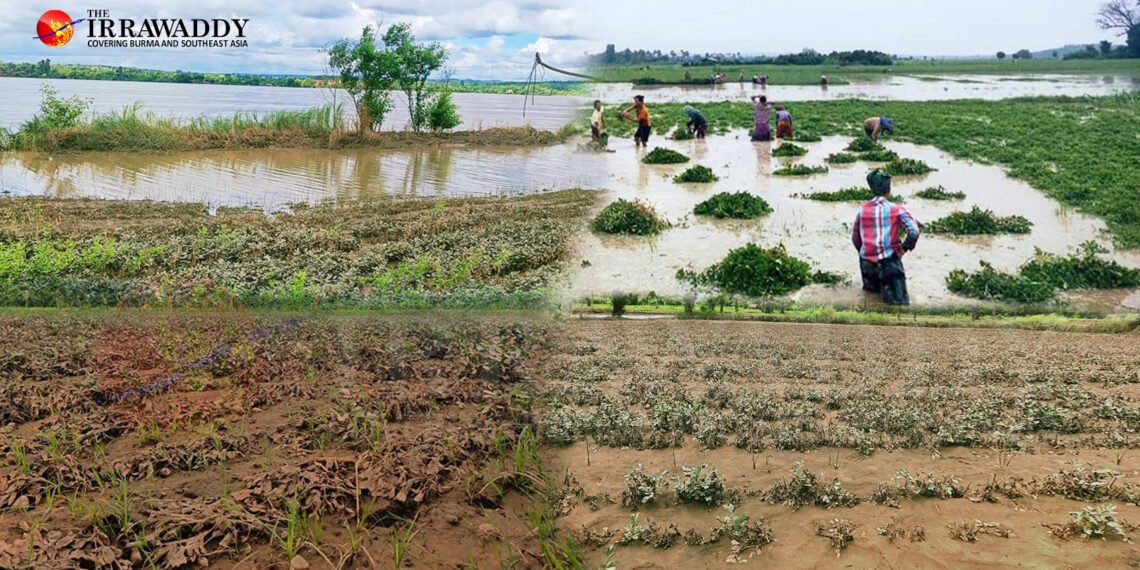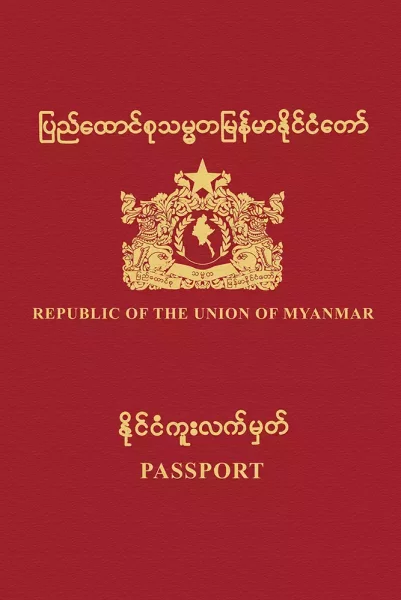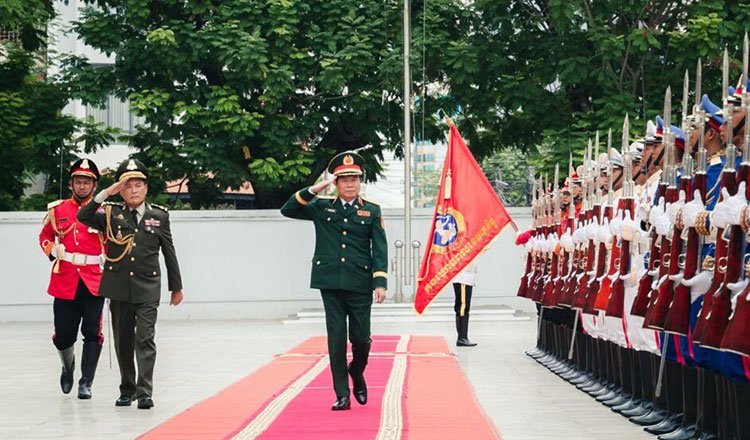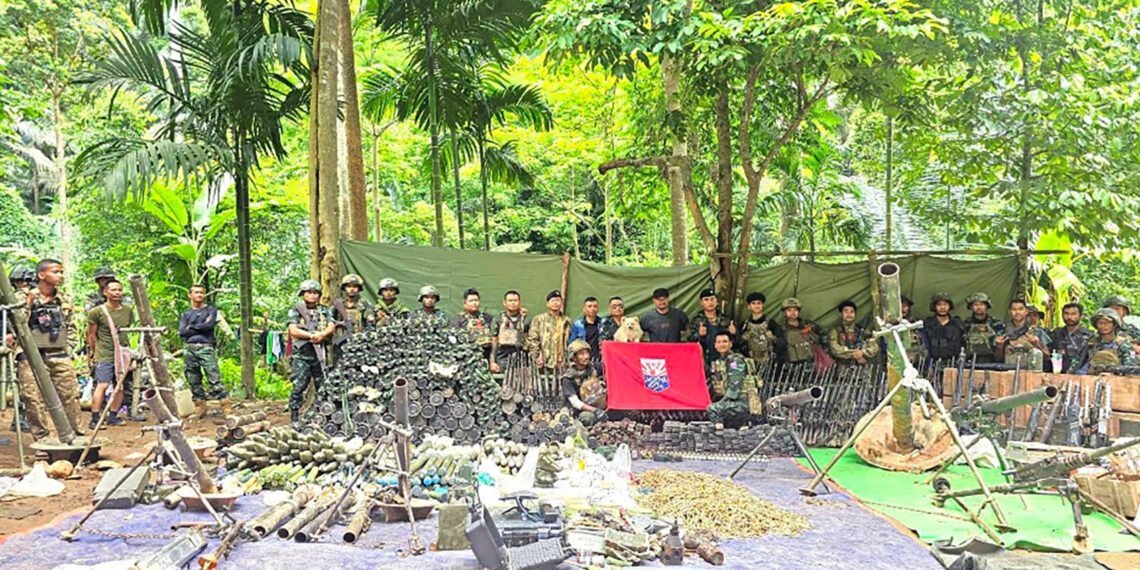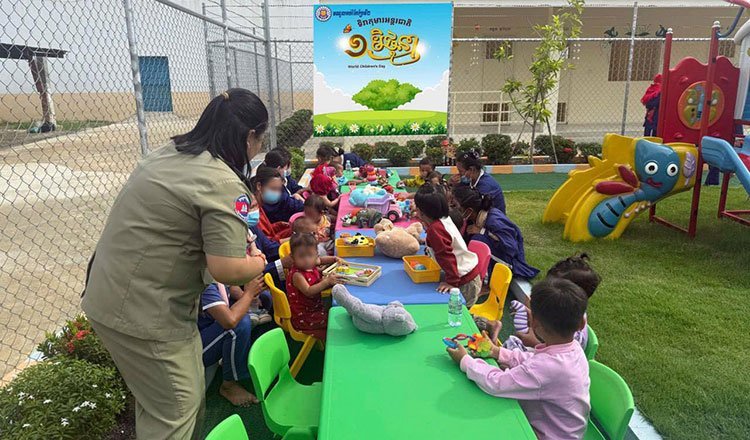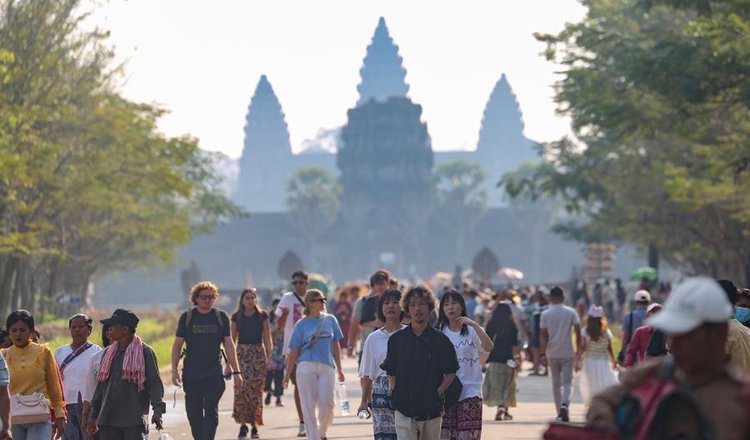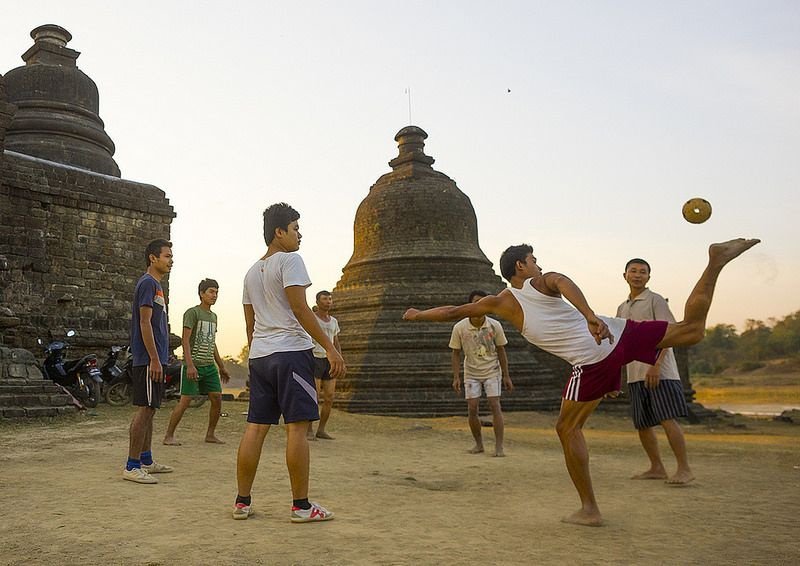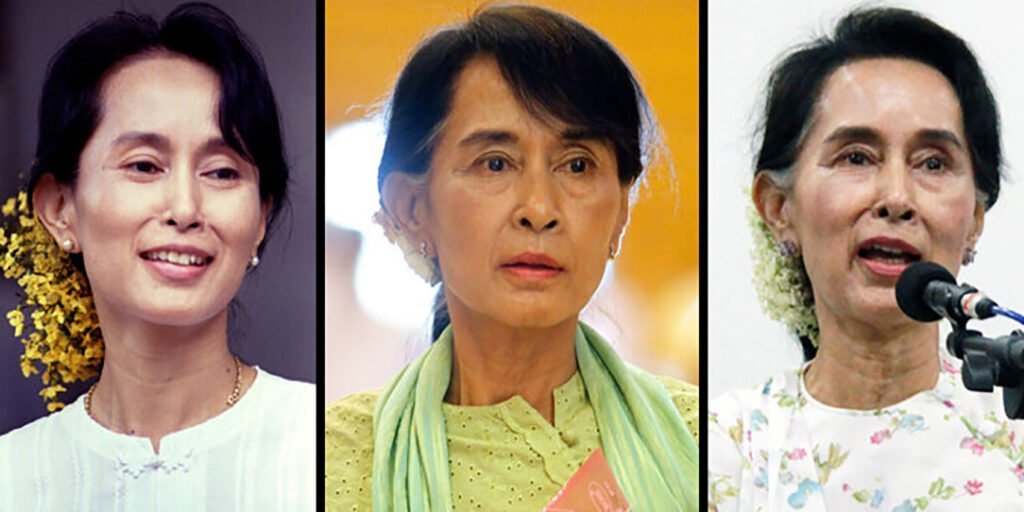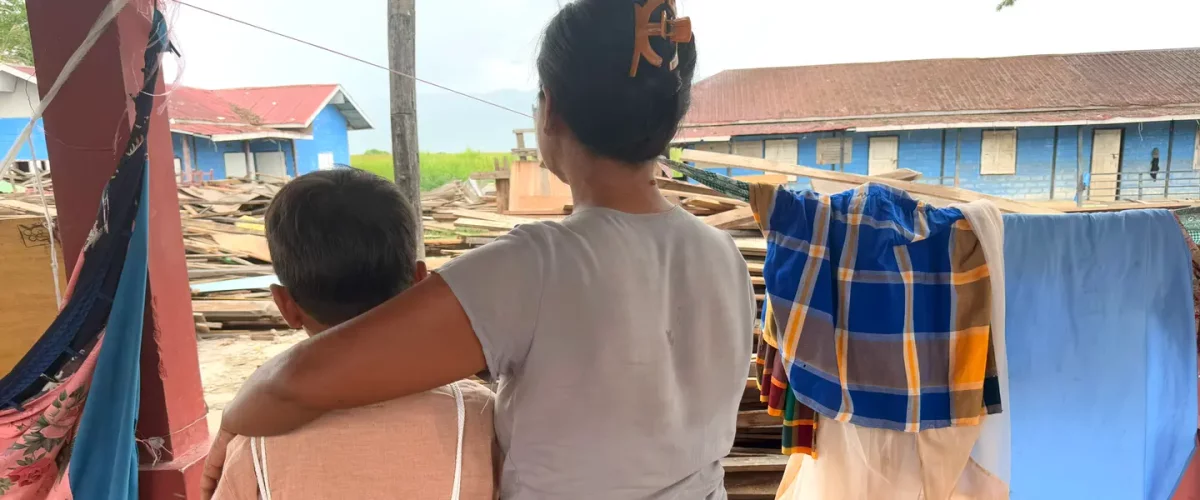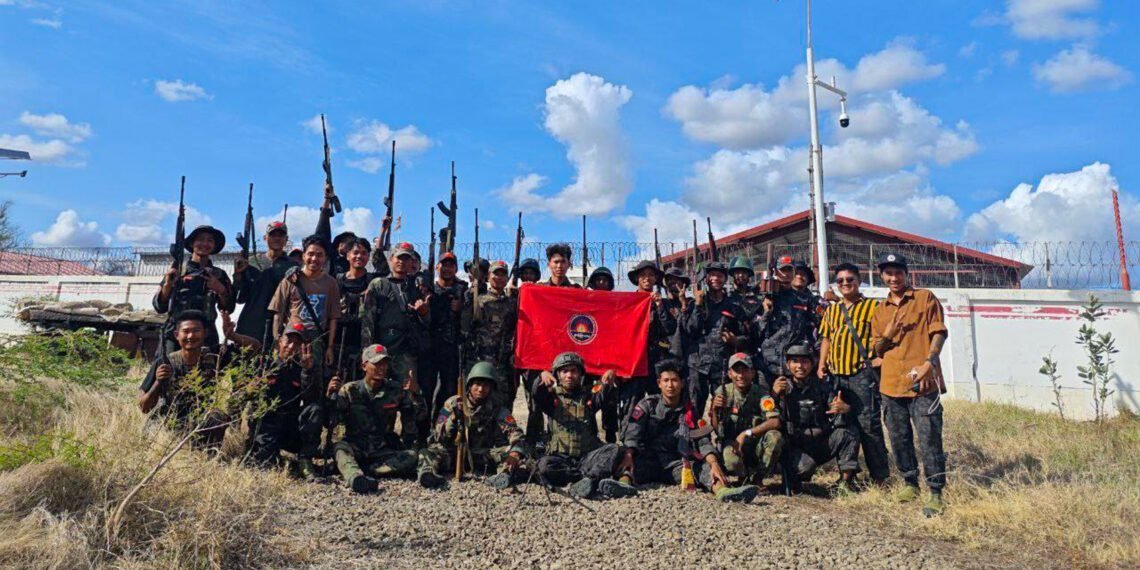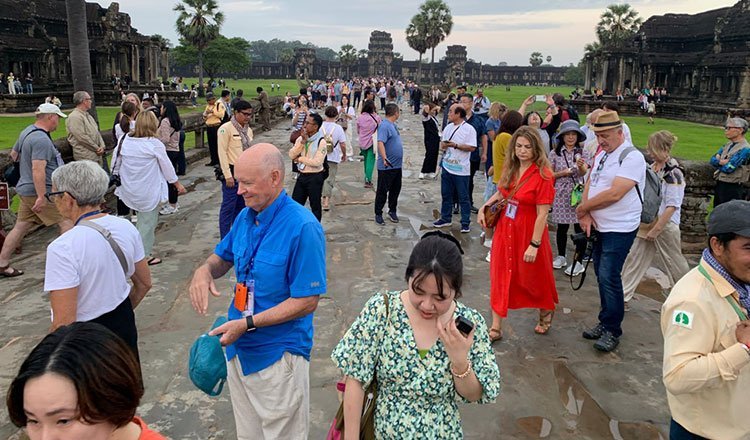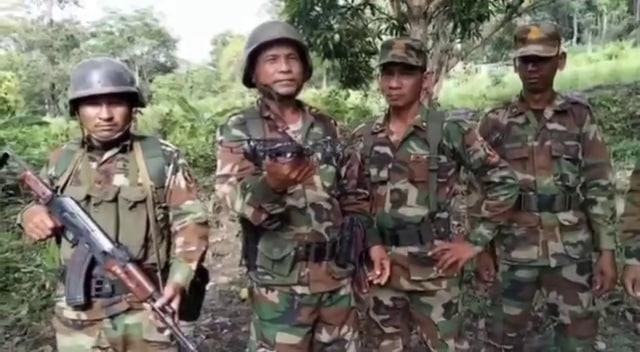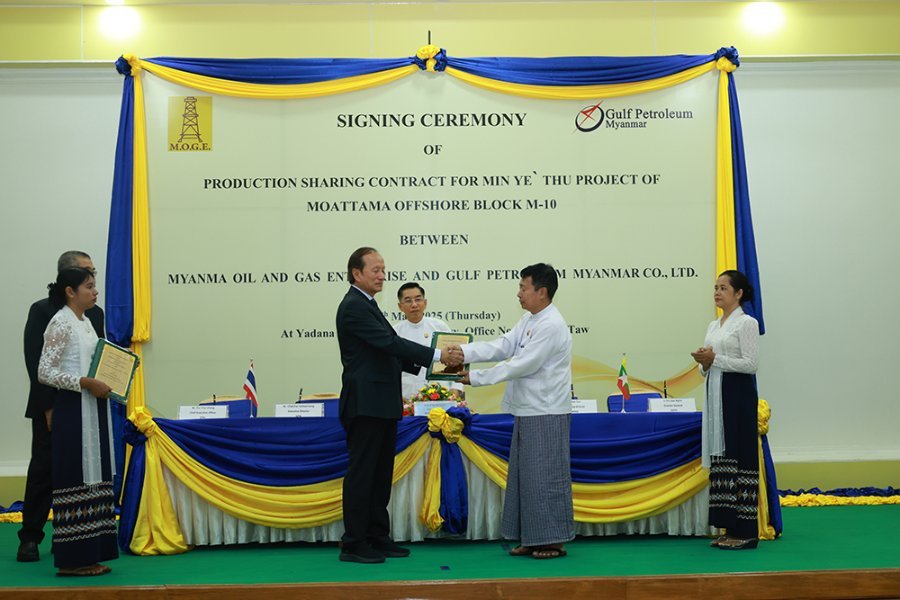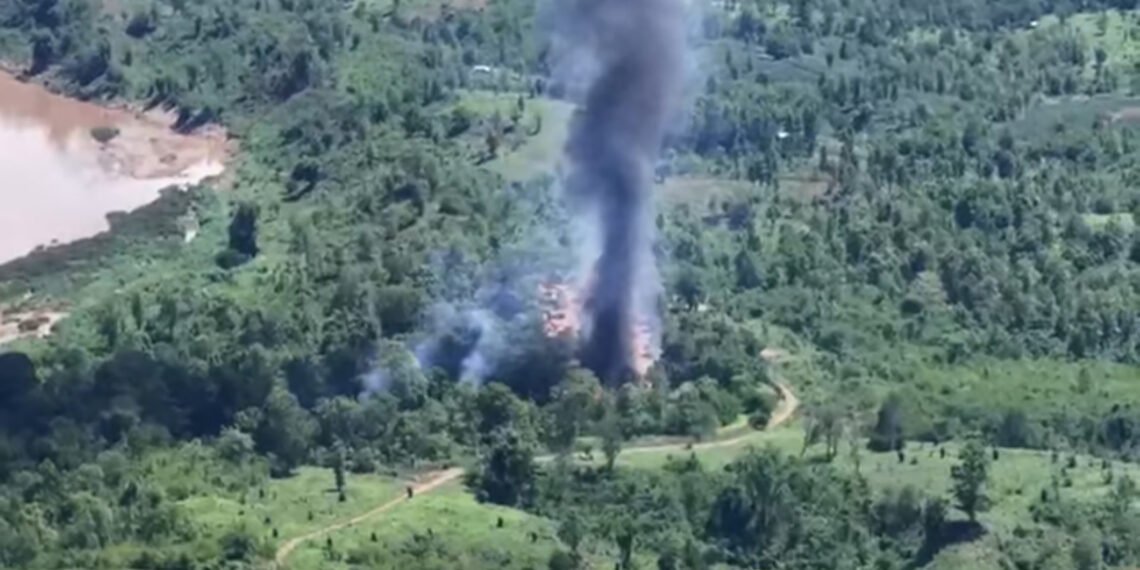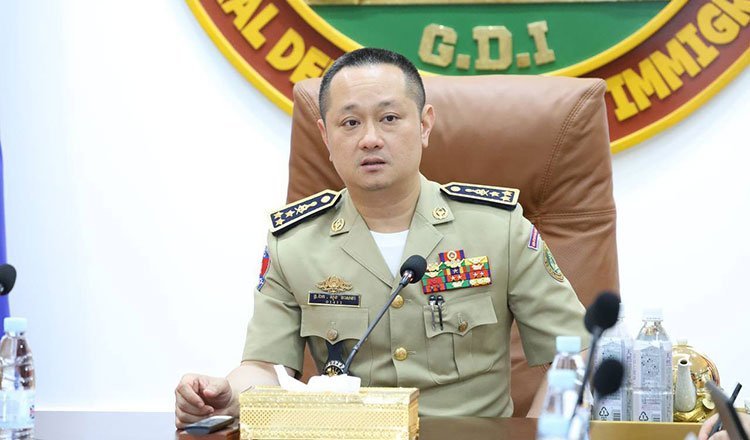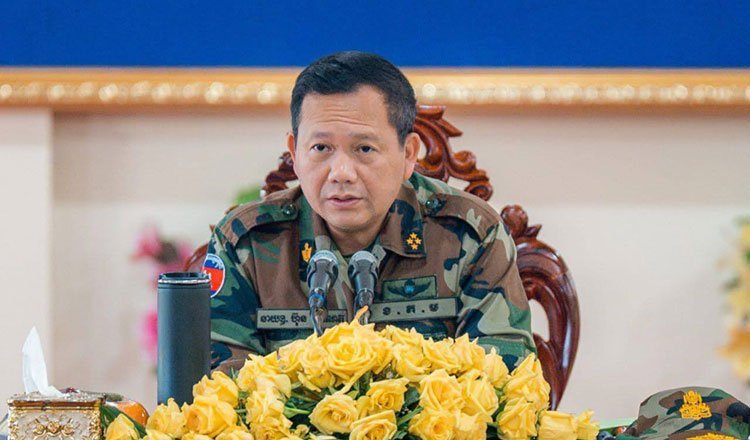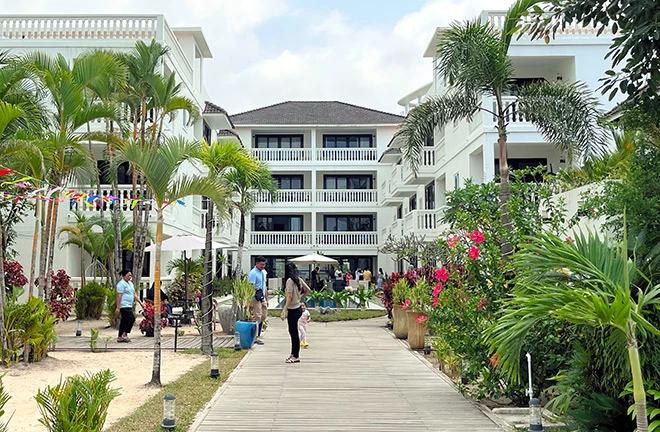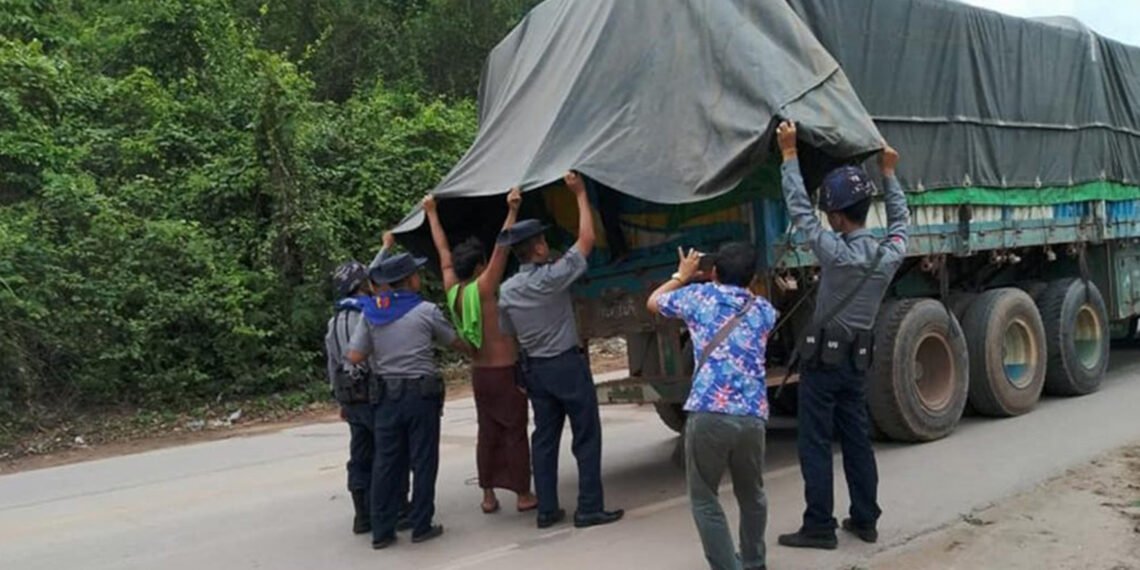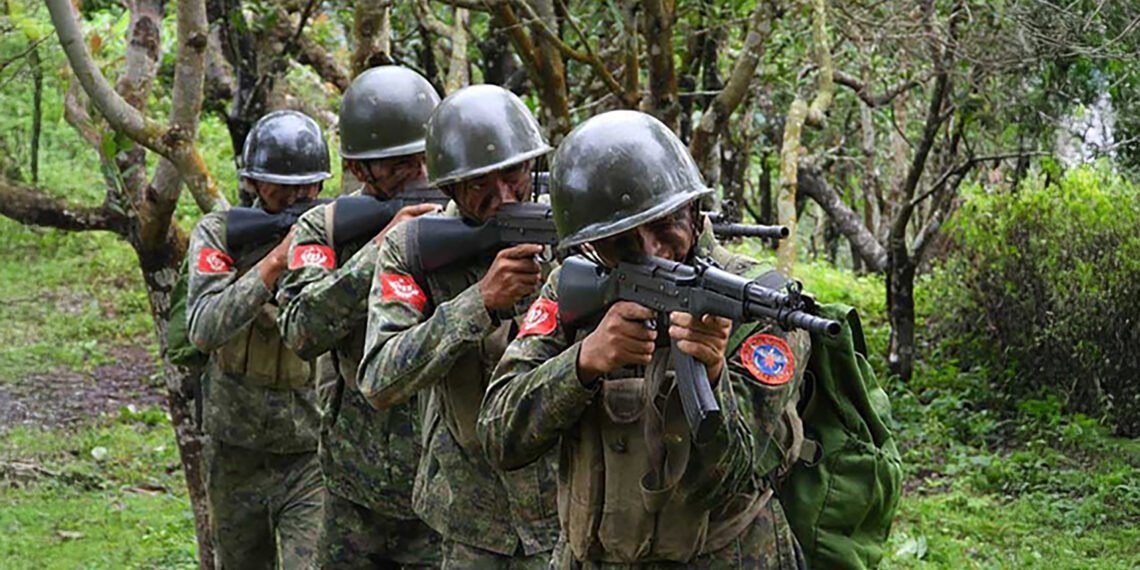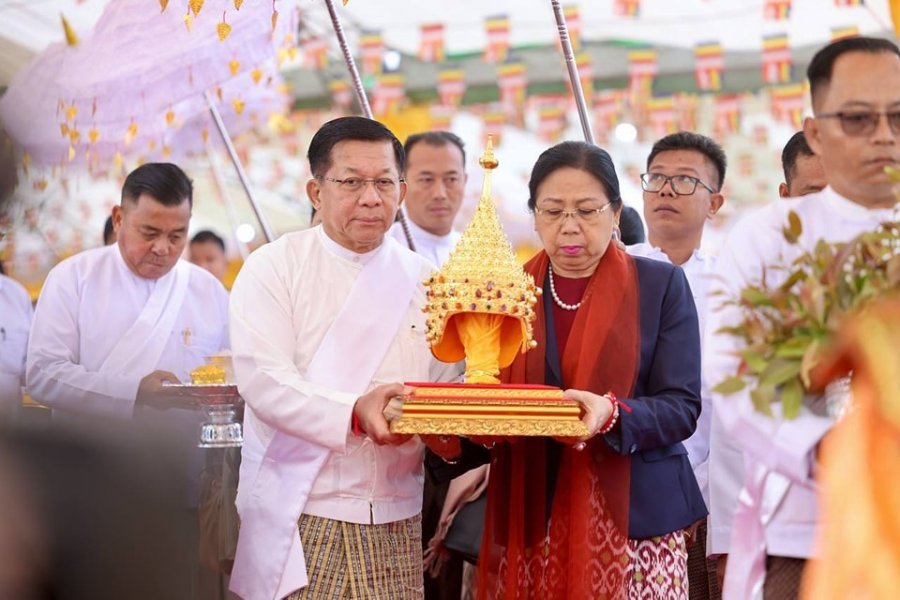-
Posts
15,793 -
Joined
-
Last visited
Content Type
Events
Forums
Downloads
Quizzes
Gallery
Blogs
Everything posted by geovalin
-
The Irrawaddy Farmers across Myanmar’s central regions are facing ruin as relentless monsoon rains flood thousands of acres of sesame and bean crops, with little hope of government assistance. Heavy downpours, triggered by a May storm in neighbouring Bangladesh, have battered Chin, Rakhine, Sagaing, and Magwe, damaging early harvests just as the planting season was underway. In some areas, rainfall has continued for more than ten days without pause. In Sagaing’s Khin-U Township, one farmer told The Irrawaddy, “It has been raining continuously for weeks, severely impacting the mung bean harvest. Damaged beans are sold cheaply, and drying them costs extra.” A 32kg sack of mung beans has dropped by roughly US$13 in value—critical for farmers already stretched thin by high input costs. In neighbouring Magwe, nearly 2,000 acres of sesame fields in Minbu District have been submerged. With sesame seed prices now climbing, most farmers can’t afford to replant. “Some tried pumping water out, hoping to save the crops,” said one local resident. “But it kept raining. The pumping only added to their costs.” Farmers say growing sesame now costs close to one million kyats (about US$435) per acre, while mung beans and pulses cost around 600,000 kyats to cultivate. The early harvest usually brings the highest yield; missing it can mean financial disaster. Experts blame worsening flood impacts on years of environmental mismanagement. The Irrawaddy River, once a natural drainage lifeline, is now struggling to carry away floodwaters due to poor land and water use policies. Meanwhile, Myanmar’s military government has remained silent. State media has yet to report on the damage in Minbu, and locals doubt relief is coming—especially as Magwe remains a heartland of resistance to junta rule. Last year, Myanmar’s agricultural sector suffered staggering losses, with floods destroying over 760,000 acres of crops and killing more than 100,000 livestock. This year’s toll is rising fast—and for many rural families, survival is now a daily struggle. -2025-06-06
-
- 1
-

-
Koh Kong province is gearing up for a landmark moment as it prepares to host its first-ever provincial festival, Celebrating the Southwest, from 10 to 15 June in Khemarak Phoumin city. Nestled along Cambodia’s pristine southwestern coast, Koh Kong is often praised for its untouched beauty. Now, local authorities hope the festival will put the province firmly on the tourism map by showcasing its rich natural landscapes, diverse culture, and warm community spirit. The week-long celebration promises a vibrant mix of activities, including live music from popular Cambodian artists, a traditional Khmer martial arts competition, and a province-wide singing contest. Visitors can also sample a wide selection of food at a multi-ethnic culinary fair, browse local crafts from artisans and small businesses, and paddle kayaks along the scenic coastline. Those seeking a closer connection to nature can even camp under the stars. In a heartfelt addition, the festival will feature a humanitarian cycling event, with proceeds going to support children in need—an effort organisers say reflects the province’s community-minded values. Koh Kong’s provincial administration says the festival is not only a celebration of local pride but a strategic step towards sustainable tourism. With its mix of entertainment, cultural heritage, and natural allure, the event aims to attract both domestic and international visitors to discover the province’s often-overlooked potential. As the festival prepares to open its doors, Koh Kong is ready to shine—inviting all to experience the very best of Cambodia’s southwest. -2025-06-06
-
KT Cambodia has united across political, social, and institutional lines in backing the government’s decision to take a long-standing border dispute with Thailand to the International Court of Justice (ICJ). The move follows a deadly clash on 28 May in the contested Mom Bei area, where a Cambodian soldier was killed. Phnom Penh has condemned the incident as a serious violation of its sovereignty, alleging Thai troops opened fire on a long-established Cambodian position. Prime Minister Hun Manet responded swiftly, declaring that Cambodia will file the case at The Hague over four sensitive locations: Mom Bei and the temples of Ta Moan Thom, Ta Moan Tauch, and Ta Krabey. The decision, he said, reflects “a firm commitment to international law” and will be pursued unilaterally if necessary. In an unprecedented show of national unity, the country’s first-ever joint session of Parliament—bringing together both the National Assembly and Senate—offered unanimous support. The public followed suit, launching social media campaigns and donating directly to troops on the border. Even the King and Queen Mother joined the effort, each contributing $10,000. “While the government can fully support the army, these gestures are a great encouragement to our forces,” Hun Manet said. The Royal Government has called for calm, urging Cambodians not to let the issue stir ethnic or nationalist tensions. “We emphasise the importance of maintaining normal relations with Thailand,” read a statement on 5 June, stressing continued cooperation in trade and tourism. Thailand, meanwhile, has stated its preference for bilateral talks and existing mechanisms under the 2000 Memorandum of Understanding. Thai Prime Minister Paetongtarn Shinawatra said her country values peace but is prepared to defend its territory if needed. The two nations are set to meet on 14 June in Phnom Penh through the Joint Boundary Commission, although the four disputed sites will not be on the agenda. Cambodia insists its ICJ move is not an act of aggression, but a peaceful assertion of sovereignty—an approach it has taken before, winning key rulings in similar cases in 1962 and 2013. -2025-06-06
-
In a dramatic revival of a signature Trump-era policy, US President Donald Trump has reimposed sweeping travel restrictions on 12 countries — with Myanmar among those hit by the full force of the new executive order. Signed on Wednesday, the ban will take effect on Monday and bars entry to nationals from Myanmar, Afghanistan, Iran, and nine other nations. The White House justified the move by citing a recent attack in Colorado allegedly carried out by an undocumented migrant, prompting a swift and unilateral response from the administration. Myanmar, which was included without advance warning, now faces a near-total suspension of travel to the United States. The ban comes as the military-led Southeast Asian nation grapples with ongoing conflict and international isolation following its 2021 coup. Trump likened the action to his 2017 ban that targeted mainly Muslim-majority countries, claiming the previous policy “prevented the kinds of terror attacks that devastated Europe.” Speaking in a video posted on X, he declared, “We don’t want them,” referring to migrants from countries deemed unable to conduct thorough security vetting. Critics say Myanmar’s inclusion is likely to worsen the humanitarian plight of those fleeing military persecution, particularly Rohingya and pro-democracy activists seeking asylum or resettlement abroad. Advocacy groups warn the ban could block vital pathways to safety for vulnerable populations already facing international hurdles. While Trump and his officials claim the move is based on visa overstay rates and lack of government transparency, Myanmar’s embattled status raises questions about how the criteria were applied. The order references countries lacking “competent” authorities or failing to share identity and threat information — conditions that arguably apply to Myanmar under its current regime. Legal challenges are expected, with civil liberties groups describing the measure as discriminatory and politically driven. Nonetheless, Trump has made immigration a cornerstone of his return to the White House, with this ban marking just one piece of a broader hardline agenda. For Myanmar nationals abroad, the announcement has sparked fresh uncertainty and fear. For those still inside the country, it serves as yet another sign of deepening isolation from the international community. -2025-06-05
-
TVK Cambodia and Vietnam have pledged to complete the final 16% of their shared border demarcation, reaffirming a commitment to stronger defence ties and regional peace during a high-level military visit to Phnom Penh this week. General Nguyen Tan Cuong, Deputy Minister of National Defence and Chief of the General Staff of the Vietnam People’s Army, arrived in Cambodia on Tuesday leading a senior delegation aimed at boosting military cooperation and regional stability. His visit included talks with Prime Minister Hun Manet, Senate President Hun Sen, and top Cambodian military officials. In bilateral talks with General Vong Pisen, Commander-in-Chief of the Royal Cambodian Armed Forces, the two sides emphasised turning the border into one of “peace, friendship, cooperation, and development”. Gen Cuong praised Cambodia’s political and economic stability and noted the significance of plans to erect a Cambodia–Vietnam Friendship Monument at the Vietnam Museum—a symbolic move highlighting the long-standing historical and strategic alliance between the two nations. During his meeting with Hun Sen, Gen Cuong conveyed an invitation from Vietnam’s Communist Party General Secretary, To Lam, for the former Prime Minister to attend Vietnam’s 80th independence anniversary. Hun Sen accepted, saying the visit would deepen military and bilateral ties, while also referencing the June 20 anniversary of his journey into Vietnam in 1977 to fight against the Khmer Rouge. He also reiterated the need to finalise border demarcation, describing it as vital to maintaining peaceful and stable relations. In separate talks with Prime Minister Hun Manet, Gen Cuong stressed the value of regular high-level exchanges and proposed deeper collaboration in defence training. Hun Manet welcomed the initiative, calling for broader cooperation on infrastructure, trade, and cross-border crime prevention. Analysts see the visit as a continuation of the strong political-military alignment between Phnom Penh and Hanoi. Thong Mengdavid, a researcher at the Royal University of Phnom Penh, said the push for full demarcation reflects a shared desire for security and stability in an increasingly unpredictable region. “Enhanced cooperation on border protection and crime prevention will benefit both nations,” he noted. -2025-06-05
-
Emirates marked a major expansion in Southeast Asia on Tuesday, as its inaugural flight to Siem Reap, Cambodia, touched down to a ceremonial water salute and a welcome from senior government dignitaries. The new Dubai–Bangkok–Siem Reap route makes Emirates the first Middle Eastern carrier to connect directly with Cambodia’s famed temple city, adding three weekly flights to its existing daily service to Phnom Penh. This brings the airline’s presence in Cambodia to 10 weekly flights, signalling growing confidence in the Kingdom’s tourism and trade sectors. The arriving Boeing 777-300ER was greeted at Siem Reap Angkor International Airport by Cambodian officials including Dr MAO Havanall, Minister in Charge of Civil Aviation, alongside UAE diplomats and senior executives from Emirates. Local business leaders also attended the ceremony. “This new route supports tourism, trade, and deepens UAE-Cambodia ties,” said Dr Havanall. Emirates, the world’s largest international airline, resumed daily flights to Phnom Penh in May 2024 and now adds Siem Reap to its Southeast Asian network, highlighting Cambodia’s rising global appeal. Nabil Sultan, Emirates’ Executive Vice President, noted that the new route not only celebrates a year since the relaunch of services to Phnom Penh, but also strengthens Cambodia’s links with Europe and the Gulf. “Siem Reap’s cultural richness makes it a natural fit for our growth in this region,” he said. The flight schedule is designed for seamless connections from key European markets including the UK, France, Germany and Spain. Emirates flight EK370 will operate on Tuesdays, Thursdays and Saturdays, arriving in Siem Reap at 21:30 local time via Bangkok. Return flights depart late evening for optimal onward connections to Dubai and beyond. This expansion comes amid increasing regional competition, but Emirates is betting big on Cambodia’s tourism recovery and growing commercial ties through its support of the UAE-Cambodia Comprehensive Economic Partnership Agreement (CEPA). -2025-06-05 With luxurious three-class service and a robust entertainment offering, the new Siem Reap service reinforces Emirates’ ambition to be the airline of choice for travellers to and from Cambodia—whether for business, leisure, or cultural discovery.
-
Pyi Oo Aung Myanmar’s coup leader Min Aung Hlaing has appointed a personal photographer to document his and his wife’s activities, breaking with decades of military tradition in what critics are calling a vanity project. The photographer, Major Pyi Oo Aung—a military officer and former underwater photography blogger—was handpicked by the junta chief following the 2021 coup. His exclusive role now includes curating and approving all official images of Min Aung Hlaing that appear in state-run media, effectively shaping the dictator’s public image. In Myanmar’s military history, such a personal appointment is unprecedented. Previous generals, including Than Shwe, relied on official photographers from the Ministry of Information or Myawaddy Media Group. Even during the height of junta rule in the 1990s and 2000s, the public imagery of top brass remained the purview of government agencies, not individuals directly answerable to the generals themselves. That changed after Min Aung Hlaing seized power. His son, Aung Pyae Sone, a photography enthusiast, is said to have helped arrange the appointment, tapping into his network within the Myanmar Photographers Association. Pyi Oo Aung, known in creative circles as “Black Dream” and “Aperture 21,” once enjoyed a reputation for nature and underwater photography. Trained in Russia and serving in a defence technology unit upon his return, he had reportedly tried to resign from the military several times—efforts allegedly blocked due to his specialised training. But the coup opened a new chapter. Promoted and stationed at the War Office in Naypyitaw, Pyi Oo Aung is now the gatekeeper of the junta leader’s image. Only photos he has vetted appear in official channels like Myawaddy TV and state newspapers. In military and media circles, this move has raised eyebrows. Critics say it reflects the junta chief’s deepening obsession with personal image even as the country reels from civil war and economic collapse. The nickname circulating in Naypyitaw—“photographic politician”—speaks volumes about the growing gap between Min Aung Hlaing’s authoritarian governance and the carefully curated persona he projects to the public. -2025-06-05
-
Cobra Column China is quietly urging two powerful ethnic armed groups in Myanmar to halt their offensives in a bid to protect major infrastructure investments vital to its Belt and Road Initiative. According to a report by The Irrawaddy, Beijing’s special envoy Deng Xijun met with leaders of the Arakan Army (AA) and Kachin Independence Army (KIA) in late May, offering closer ties in exchange for ceasefires in volatile regions of Rakhine and Kachin states. Both regions host key Chinese-backed projects, including the deep-sea port at Kyaukphyu and energy pipelines running to Yunnan province. The AA and KIA, which are part of a broader anti-junta resistance, have made sweeping territorial gains since launching offensives last year. The AA now controls most of Rakhine State, while the KIA is threatening the strategic town of Bhamo, close to the Chinese border. These advances pose a growing risk to China's economic interests—and to the military regime's grip on the region. Beijing’s message is clear: stability must return if trade and development are to continue. China has used similar pressure tactics before. Over the past year, it successfully pushed the other members of the Three Brotherhood Alliance—the Ta’ang National Liberation Army (TNLA) and Myanmar National Democratic Alliance Army (MNDAA)—into ceasefires with the junta. That effort included shutting border crossings and cutting internet and fuel supplies, even detaining a rebel commander during negotiations. In a significant concession to China, the MNDAA recently agreed to withdraw from Lashio, a vital trade hub in Shan State, returning control to junta forces under Chinese supervision. The latest reported diplomatic push suggests Beijing is applying the same playbook to the AA and KIA. China’s goal isn’t to prop up the widely unpopular junta out of loyalty, but rather to keep the region calm enough to pursue its strategic aim: a secure corridor connecting Yunnan to the Indian Ocean. With Myanmar’s civil conflict intensifying and rebel groups gaining ground, China appears increasingly willing to throw its weight behind a fragile status quo—at least for the sake of its own long-term ambitions. -2025-06-05
-
GDP A May statement from a Cambodian human rights NGO has drawn national attention to the plight of children living with their mothers in prisons — claims the General Department of Prisons (GDP) swiftly rejected. The Cambodian League for the Promotion and Defense of Human Rights (Lichado) released its concerns on International Children’s Day, saying children under three raised behind bars are denied proper nutrition, education, and play. The group pointed to the unchanged daily budget of 1,750 riel (about 45 cents) per child since 2018 and cited a former inmate, Leakhena, who described raising her son in cramped and playless conditions. But prison officials pushed back. GDP spokesman Kheang Sonadin said, “We never consider these children as inmates,” stressing efforts to prioritize health and early education for the 120 children currently in custody with their mothers. Sonadin acknowledged that prisons “are not kindergartens” but said officials work with NGOs to create safe areas for toddlers. He also emphasized that children are relocated at age three, ideally to family or, if unavailable, to orphanages. The controversy has revived calls for improved prison conditions, especially as Cambodia continues to balance incarceration policies with the rights of its youngest and most vulnerable residents. -2025-06-04
-
Chinese tourist arrivals to Cambodia’s Angkor Archaeological Park climbed by 30% in the first five months of 2025, marking a strong rebound for the country's top heritage site. New data from Angkor Enterprise shows that 43,193 Chinese visitors explored the UNESCO-listed complex between January and May — up from 33,292 during the same period last year. China ranked fourth among source countries, trailing only the US, UK, and France. In total, Angkor welcomed over 527,000 foreign tourists from 171 countries, generating $24.5 million in ticket sales. The spike comes amid renewed efforts to revive regional tourism under the banner of Cambodia-China Tourism Year 2025. Thong Mengdavid of the Royal University of Phnom Penh credits “greater accessibility, promotional campaigns, and direct flights” for the rise. Tourism leader Thourn Sinan called the increase “a significant step forward in revitalising bilateral exchanges.” Located in Siem Reap province, Angkor’s sprawling 401-square-kilometre site features 91 temples dating back as far as the 9th century. The May surge in Chinese visits offers a welcome boost to the local economy — and a sign that Cambodia’s post-pandemic tourism recovery is gaining ground. -2025-06-04
-
In the heart of conflict-ridden Myanmar, an age-old sport is waging its own quiet battle for survival. Chinlone — a mesmerising mix of dance, dexterity and discipline — is Myanmar’s traditional ball game, and for many, a cherished cultural balm in an increasingly fractured nation. “Play day is always a happy day,” says Min Naing, a 42-year-old player. But with civil war raging, poverty rising, and materials running scarce, those happy days are becoming fewer. Played in bustling Yangon courts and dusty village sheds, chinlone is part sport, part performance. Men pass a rattan ball between them using feet, knees and heads in rhythmic flow, while women perform acrobatic solo routines — sometimes atop chairs, twirling umbrellas or spinning flaming hula hoops. Yet the sound of the cane ball — once likened to music — is fading. Since the 2021 military coup, participation has plunged. Conflict and inflation have choked the livelihoods of the game’s artisans, who painstakingly hand-weave each ball from jungle-sourced rattan. Master craftsman Pe Thein, 64, likens inspecting his work to “checking diamonds or gemstones”. But his prized rattan, harvested from war-torn Rakhine state, is now dangerously hard to come by. “It should not be that we have players but no chinlone makers,” says Maung Kaw, another veteran ball maker. Chinlone dates back more than 1,500 years and was formalised as a national sport in 1953, part of Myanmar’s post-independence cultural revival. Today, it’s a defiant symbol of identity in a nation under siege. Players, like 16-year-old prodigy Phyu Sin Phyo, train relentlessly — even while sick. “It is important to be patient,” she says, eyes fixed on the burning ball she balances while spinning fire. Despite hardship, chinlone endures — played under overpasses, around blacked-out street lamps, or wherever there's space and spirit. “When you hear the ball, it’s like music,” says Win Tint, 74, vice-chair of the national federation. “When you play chinlone, you feel like dancing.” The question now: can the dance go on, or will the silence of war claim one more part of Myanmar’s soul? -2025-06-04
-
Sir Keir Starmer is facing growing calls to personally intervene in what human rights groups describe as the “unspeakable tragedy” unfolding in Myanmar, where Aung San Suu Kyi remains imprisoned alongside 22,000 political detainees. A new report by the Conservative Party’s Human Rights Commission has urged the Labour leader to meet Suu Kyi’s British-born son, Kim Aris, and take a firmer stance against the military junta that seized control in a coup four years ago. The same report outlines harrowing accounts of atrocities, including airstrikes on civilians, executions, rapes and torture. Suu Kyi, once celebrated as a democratic icon and Nobel Peace Prize laureate, is currently serving a 27-year sentence on widely condemned charges. While her reputation was marred by her silence over the persecution of Myanmar’s Rohingya Muslims, campaigners argue her detention is politically motivated and that her release remains a key to restoring civilian rule. David Lammy, the Foreign Secretary, earlier this year made a historic direct appeal for her freedom, calling on the military regime to “give the country’s people the peace and democracy they deserve”. He is now joined by three former foreign secretaries, including Lord Hague, who has labelled Suu Kyi a “political prisoner on trumped-up charges”. The report follows testimony from former detainees, including Kim Aris and Professor Sean Turnell, Suu Kyi’s ex-economic adviser who spent 650 days in prison. It demands stronger international action — from a global arms embargo to financial sanctions — and calls on the UK to convene an urgent UN Security Council meeting on Myanmar. Tim Loughton MP, who chairs the commission, said the situation is “a never-ending nightmare” and a “vile inhumanity” that the UK must no longer ignore. He added the time had come for Britain to lead a renewed international push to hold Myanmar’s military to account. With Myanmar still reeling from a devastating March earthquake, campaigners say the junta’s brutality continues unchecked. Whether Starmer will take up the call remains to be seen — but pressure is clearly mounting. -2025-06-04
-
Save The Children YANGON, 2 June 2025 – As schools reopen across Myanmar, tens of thousands of children are beginning the academic year in makeshift classrooms, with more than 2,500 schools still damaged or destroyed following the devastating earthquake in March, Save the Children warned on Monday. The earthquake, one of the most powerful to hit the country in recent years, compounded an already dire humanitarian situation. Even before the disaster, an estimated 6.3 million children in Myanmar were in need of humanitarian support due to ongoing conflict and climate-related crises. Among the affected is 10-year-old Zin Phyo*, whose home and school were both destroyed. “If I had magic powers, I would bring the houses and school back to how they were before,” he told Save the Children. “Some of my friends are afraid to come back to school. If I get the chance, I will clean my classroom and wear my school uniform proudly.” Save the Children is providing education kits—including school bags, stationery, and t-shirts—to help students like Zin Phyo continue learning. The organization has also distributed essential aid such as food and clean water, and established child-friendly spaces offering emotional support. Abdurahman Sharif, Senior Humanitarian Director at Save the Children International, stressed the urgency of the situation: “Despite the huge scale of the crisis, the international community’s response has been woefully inadequate. Education is lifesaving—it protects children in a safe space and provides a sense of stability.” He called for a coordinated and sustained global effort to address the immense and overlapping challenges faced by children and families in earthquake-hit regions. “They must not be forgotten,” he said. In addition to education, affected communities urgently require shelter, food, clean water, and psychosocial support. Save the Children, which has operated in Myanmar since 1995, continues to deliver emergency relief and protection services in many of the hardest-hit areas. [*Name changed to protect identity] -2025-06-03
-
- 1
-

-
“Operation 9/A Nyar Myae” In a major blow to Myanmar’s military regime, anti-junta forces have captured four strategic outposts along the Thai-Myanmar border in Karen State’s Myawaddy Township within just three days, according to military and resistance sources. The coordinated assaults, which took place between May 28 and 30, were led by a coalition of the Karen National Liberation Army (KNLA) and People’s Defence Force (PDF) units under the National Unity Government’s Ministry of Defence. Another significant junta position in the area reportedly fell on May 23. "Each one collapsed within a day or two, which reflects how dire their situation is," said Padoh Saw Taw Nee, spokesperson for the Karen National Union (KNU), the KNLA’s political wing. Among the seized sites was a junta outpost in Baledo village, just south of the border town of Myawaddy, a key trading hub adjacent to Thailand. The escalation at the border coincides with rising military tension in central Myanmar. In Mandalay Region’s Taungtha Township, junta forces are amassing in an apparent bid to retake sections of a China-backed oil and gas pipeline corridor recently seized by resistance fighters. Around 150 troops arrived in Taungtha on May 29, with reinforcements of 60 more arriving days later. The pipeline is a vital energy link to China, and its seizure has reportedly drawn pressure on the regime to mount a counteroffensive. Launched on May 15, the anti-regime coalition's “Operation 9/A Nyar Myae” has seen coordinated attacks across Taungtha, Natogyi, Myingyan, and Nganzun townships. Fighters captured junta-held positions along the pipelines in Natogyi and have maintained control despite an anticipated regime response. The resistance has also conducted raids on junta offices and residences, including attacks on May 28 that targeted the local land records department. Fighting has since reached central Taungtha, where pro-junta channels reported fires and multiple casualties. In nearby Myingyan Township, resistance forces claim to have killed at least 50 junta-aligned personnel in operations between May 22 and 27. With both sides sustaining losses and junta airstrikes expected, local populations remain on edge. Myingyan District is considered a key resistance stronghold, strategically positioned between junta airbases at Tada-U and Meiktila, and bordering several volatile townships across Mandalay and Sagaing regions. As the fighting intensifies both along the Thai border and in central Myanmar, the military junta faces growing pressure on multiple fronts, while resistance forces continue to gain ground. -2025-06-03
- 1 reply
-
- 2
-

-

-
KT Tep Sony Cambodia’s famed Angkor Archaeological Park has pulled in more than $24.5 million in ticket sales from foreign visitors in the first five months of 2025 — a 10.64% rise on the same period last year. According to Angkor Enterprise, the state body overseeing ticket sales, over 527,000 international tourists visited the ancient temple complex between January and May — an 11.71% increase year-on-year. In May alone, 52,767 foreign tourists brought in $2 million in revenue. The uptick reflects a broader recovery in Cambodia’s tourism sector, which was severely hit during the pandemic years. Additional historical sites such as Koh Ker and Beng Mealea also saw healthy footfall, collecting over $248,000 in combined revenue. Tourism officials are now eyeing even greater gains during Cambodia’s so-called Green Season — the rainy months when visitor numbers typically drop. Speaking in Siem Reap during Khmer New Year, Prime Minister Hun Manet urged officials and the private sector to revitalise the low season by organising events and boosting street-level activity. “During the Green Season, we must strive to boost tourist numbers to at least 70 to 75 percent of those recorded in the high season,” he said. Kao Philip, President of the Siem Reap Tourism Club, praised the lush landscapes of Angkor as a major draw and welcomed the government’s increased promotion efforts. He acknowledged the road ahead remains long but said joint public-private initiatives are already making a difference. “We understand this is just the beginning,” he noted, “but we are committed to promoting Cambodian tourism, both at home and abroad.” The numbers show momentum is building. Cambodia welcomed 1.83 million international visitors in the first quarter of 2025, up from 1.58 million in the same period last year. Following a successful 2024, when 6.7 million international tourists visited the Kingdom, the Ministry of Tourism has set its sights on surpassing seven million this year. With ancient temples, renewed strategy, and growing interest, Cambodia appears ready to make its mark once more as a regional tourism powerhouse. -2025-06-03
-
Tensions between Cambodia and Thailand have flared once again, as Senate President Hun Sen issued a stern warning over continued military activity near disputed border areas — including the interception of a Thai drone in Cambodian airspace. Speaking on 2 June during a rare joint session of the National Assembly and Senate, Hun Sen condemned what he described as a series of provocations by Thai forces, including plans to dig trenches near the contested frontier and the unauthorised use of surveillance drones. “We have learned they are building a trench,” he said. “They may prepare within their own territory, but they must not come and build on my land—that is all.” Cambodian troops reportedly intercepted the drone in Preah Vihear Province, an area already sensitive due to previous clashes between the two neighbours. Military officials believe the device was conducting reconnaissance on Cambodian troop positions. Hun Sen, who also serves as President of the National Assembly, used the occasion to reaffirm Cambodia’s right to defend its territory. “Cambodia does not need anyone’s land, nor do we seek the return of lost territory,” he said. “But we will not allow anyone to seize what is ours.” He directly rejected a recent call from Thai military officials for Cambodian troops to withdraw 200 metres from a contested location in the Emerald Triangle. “Nowhere in the world is a country asked to withdraw from its own land,” he said, recalling similar pressure during a previous standoff near Preah Vihear Temple in 2011. Hun Sen also warned against the influence of dissident groups abroad, accusing them of stoking unrest and undermining national unity. “This is not about stirring anger—it’s about defending sovereignty,” he said. “We must now see who truly loves and defends the nation.” While the Cambodian leader urged citizens to stay calm, he encouraged them to remain watchful and continue supporting troops stationed along the frontier. He also thanked donors for providing supplies and morale boosts to soldiers on the ground. Despite rising tensions, Hun Sen stressed that border issues should not derail broader cooperation between Cambodia and Thailand — but insisted that sovereignty was not up for negotiation. -2025-06-03
-
MoI A Thai energy company has signed a new offshore gas deal with Myanmar’s junta, marking the first such agreement since the 2021 military coup—despite growing international condemnation of the regime’s human rights abuses. Gulf Petroleum Myanmar (GPM), a subsidiary of Thailand’s Northern Gulf Petroleum, inked a production-sharing contract with the junta-run Myanmar Oil and Natural Gas Enterprise (MOGE) in Naypyitaw last Thursday. The project, dubbed Min Ye Thu, is located in the Mottama Gulf and is set to begin production by 2028. The announcement comes as the junta faces severe budget shortfalls amid an escalating civil war. MOGE remains the regime’s largest source of foreign income and has been sanctioned by both the EU and the United States for funding military operations and atrocities against civilians. GPM operates in partnership with Myanmar’s SMART Group—long associated with the military elite—and already runs the Yetagun project, having taken over in 2022 following Petronas’ withdrawal. Energy Minister Ko Ko Lwin praised the deal, citing dwindling yields from existing gas fields and expiring contracts. “The new project will help fund further exploration and increase our foreign currency reserves,” he said. But rights watchdogs warn that such revenue will likely fund the junta’s military campaign, including a reported spike in indiscriminate airstrikes on resistance-held areas. International companies including Chevron, TotalEnergies, and Woodside exited Myanmar after the 2021 coup, citing concerns over the junta’s use of oil and gas profits to finance repression. Justice For Myanmar highlighted the opaque nature of Northern Gulf Petroleum’s operations, pointing to a network of shell companies based in tax havens such as Bermuda and the British Virgin Islands. With this latest move, critics argue, Myanmar’s military is once again leveraging its natural resources to sustain a brutal grip on power—while foreign firms risk complicity by propping up its economic lifelines. -2025-06-02
-
Karen area Myanmar’s military junta has announced a fresh extension of its post-earthquake ceasefire, pledging to support reconstruction efforts in disaster-hit regions—despite widespread scepticism over its commitment to peace. The truce, initially declared after a devastating earthquake in late March that killed nearly 3,800 people and left tens of thousands displaced, officially expired on 31 May. On Saturday, the junta confirmed the ceasefire would continue through to 30 June. In a statement, the regime said the extension aimed to “facilitate rehabilitation and reconstruction activities” in areas worst affected by the quake. Government buildings, homes, and transport infrastructure were among the priorities listed for rebuilding. The junta also claimed the truce would support preparations for what it described as “a free and fair multi-party democracy general election”—a promise many observers have dismissed as hollow, given the regime’s crackdown on political dissent since seizing power in 2021. Despite repeated announcements of ceasefires, fighting across Myanmar has persisted. Conflict monitors and rights groups have reported continued air strikes and military operations, particularly in ethnic minority regions, casting doubt on the junta’s sincerity. Critics accuse the military of using the guise of humanitarian relief to regroup and reinforce its positions, while simultaneously cracking down on resistance forces. Humanitarian agencies continue to face access challenges in quake-hit areas, citing both security concerns and restrictions imposed by the military. With the extended ceasefire now in place, attention turns once again to whether the regime will honour its commitments—or if, as many fear, the violence will continue behind the façade of reconstruction. -2025-06-02
-
Lieutenant General Sok Veasna MoI Over 140 Cambodian women have been rescued and repatriated from China this year after being deceived by human traffickers posing as marriage brokers, the Ministry of Interior has confirmed. Speaking at a press conference on Friday, Lieutenant General Sok Veasna, head of Cambodia’s General Department of Immigration, revealed that 146 women had been brought home in the first five months of 2025 alone. Many had been lured abroad under false promises, only to find themselves sold into forced marriages with Chinese men. “We are receiving these victims at Phnom Penh International Airport,” said Lt Gen Veasna. “They were trafficked under false pretences and have now been safely returned to Cambodia.” The General Department of Immigration has since tightened departure screenings at airports and border checkpoints, focusing particularly on women travelling to China under suspicious circumstances. According to authorities, several cases involved Cambodian women travelling with Chinese men they had known for just days. In one instance, a Cambodian woman and a foreign man were stopped and questioned after failing to give clear answers about their travel plans. Officials suspected trafficking and referred the case to the National Police Headquarters. The suspects were later handed over to the courts for further legal action. Authorities say traffickers are preying on vulnerable women with limited education or economic opportunities, exploiting their hopes for a better life abroad. The issue has become increasingly complex, with traffickers using social media and matchmaking schemes to disguise their operations. The Interior Ministry stressed that it remains committed to cracking down on trafficking networks and increasing awareness among at-risk communities. “We are determined to stop this trade in human lives,” Lt Gen Veasna stated. The Cambodian government continues to work closely with Chinese authorities to ensure the safe return of victims and to bring perpetrators to justice. In the meantime, officials are urging citizens to exercise caution when engaging in overseas marriage arrangements or informal travel plans. The latest figures mark a sharp reminder of the ongoing challenge of cross-border trafficking in Southeast Asia, where poverty and migration continue to fuel exploitation. -2025-06-02
-
Tensions flared along the Cambodia–Thailand border this weekend as Cambodian Prime Minister Hun Manet called for immediate talks and proposed international arbitration, following a deadly clash that claimed the life of a Cambodian soldier. In a sharp diplomatic move on Sunday evening, Hun Manet instructed the Cambodia–Thailand Joint Border Commission (JBC) to convene urgently, aiming to restart stalled demarcation work and prevent further escalation in contested zones. The call follows a fatal incident on 28 May, in which Cambodian officials accuse Thai troops of opening fire without provocation at a military outpost in Preah Vihear province. Cambodia’s Foreign Ministry has condemned the act as a “violation of sovereignty” and demanded a full investigation. “These provocations risk fuelling dangerous nationalist sentiment on both sides,” the Prime Minister warned in a statement, adding that while Cambodia remains committed to peace, it will not hesitate to defend its territory “by all means” if threatened. Beyond immediate talks, Hun Manet is now proposing that long-disputed areas—including the temples of Ta Moan Thom, Ta Moan Toch, and Ta Kro Bei—be referred to the International Court of Justice (ICJ). This marks a bold shift toward international legal arbitration to resolve tensions rooted in overlapping historical claims. The flashpoints, located in the border provinces of Oddar Meanchey and Preah Vihear, have witnessed repeated clashes over the years. The Cambodian leader argued that extremist groups on both sides are deliberately inflaming tensions, including by posting inflammatory messages online. “To avoid repeating the past, we must end this dispute conclusively,” Hun Manet said, citing maps recognised by the international community and evidence of longstanding Cambodian presence in the region. Despite firm rhetoric, Cambodia continues to emphasise diplomacy. “We are committed to peace,” the Foreign Ministry reiterated, calling for calm while pursuing accountability for the latest incident. With nationalist pressures rising and military posturing on both sides, the coming days will test whether diplomacy can prevail—or whether another border crisis is looming. -2025-06-02
-
Air Cambodia has resumed direct flights between Bangkok and the southern port city of Sihanoukville, enhancing access to Cambodia’s beach destinations and boosting regional tourism. The service, which restarted on 22 May, now operates twice weekly—on Thursdays and Sundays—using a 180-seat Airbus A320. It is currently the only direct flight between the Thai capital and Sihanoukville, a key gateway to the Gulf of Thailand’s island resorts, including the increasingly popular Koh Rong. Already operating daily flights between Bangkok and Phnom Penh, Air Cambodia is aiming to capitalise on the growing demand for seamless travel to Cambodia’s coast. The new link is expected to ease travel for both Thai holidaymakers and international tourists transiting through Bangkok, encouraging more cultural and economic exchange between the neighbouring countries. The flight schedule sees departures from Bangkok at 10:20am and returns from Sihanoukville at 12:20pm, with each leg arriving just over an hour later. In a further boost to its domestic capabilities, the airline has also taken delivery of a 70-seat ATR 72-600, a fuel-efficient aircraft designed for short-haul routes. With lower fuel consumption and the ability to land on shorter runways, it is well-suited to reaching rural parts of the country underserved by air travel. Tourism officials hope the revived Bangkok-Sihanoukville route and new aircraft will help decentralise travel beyond Phnom Penh and Siem Reap, drawing more visitors to Cambodia’s coastal provinces and remote communities. -2025-05-31
-
Cambodian authorities have raided a suspected phone scam base in Poipet, detaining more than 20 Japanese nationals believed to be involved in large-scale fraud targeting victims in Japan. The bust, which took place on 27 May in the north-western Cambodian city near the Thai border, followed a tip-off from police in Japan’s Aichi Prefecture. According to Japan’s National Police Agency (NPA), those arrested are suspected of impersonating Japanese police officers in phone calls designed to dupe victims into handing over cash under the guise of a criminal investigation. Computers, smartphones, and other equipment were seized during the operation. The building, situated among low-rise offices and dormitory-style lodgings, was reportedly fortified with multiple security gates, hinting at an organised operation. Victims were told their bank accounts had been linked to crime, and were pressured to prove their innocence by transferring funds—a tactic seen in nearly 1,900 confirmed fraud cases across Japan in the first three months of this year alone. Losses are estimated at over 17 billion yen (roughly £94 million). Aichi police revealed the tip-off came from a 21-year-old Japanese man who had unwittingly joined the scam. Recruited through a part-time job ad, he was flown to Thailand last December, then transported by car across the border to Poipet. There, under the control of Chinese supervisors, he and over 20 other Japanese were instructed to carry out the fraudulent calls. The man managed to return to Japan in January and reported his experience to police. This raid is part of a broader crackdown across Southeast Asia, where fraud bases exploiting Japanese nationals have proliferated. Since 2019, 178 Japanese citizens have been detained in similar operations in Cambodia, Vietnam, Thailand, and the Philippines. Many are believed to have been coerced into participating, lured by deceptive job offers and then trapped under tight security. Japanese investigators will now travel to Cambodia to support the inquiry and verify the identities of those detained, amid growing concern over cross-border scam networks exploiting vulnerable recruits. -2025-05-31
-
CJ Myanmar’s military regime is turning to seized contraband to plug a widening hole in its public finances, announcing plans to auction off thousands of confiscated goods as it grapples with a growing budget deficit. Deputy junta chief Soe Win this week urged officials to preserve the condition of seized items—mostly unlicensed vehicles, motorbikes, and imported machinery—so they can be resold swiftly to raise revenue. Since 2022, the junta claims to have seized goods worth over 575 billion kyats across 22,000 incidents. “We must take rapid legal steps so these goods can be sold to support the national budget,” said Soe Win, who also chairs the regime’s Illegal Trade Eradication Committee. Smuggling has surged as official border trade grinds to a halt in conflict-hit areas. Traders say the system is rife with extortion, where high taxes and opaque checkpoint fees make legal trade nearly impossible. “Even after paying taxes, junta checkpoints may seize our goods and demand bribes,” one Thai-Myanmar border trader told The Irrawaddy. “If you can’t pay, they’ll just take everything.” Sources say auctions will focus on unclaimed vehicles and cargo, with proceeds funnelled directly into junta coffers. In Hpa-an and Kawthaung, authorities reportedly conduct regular seizures to meet internal quotas, sometimes confiscating hundreds of trucks or goods worth up to 1 billion kyats per month. Meanwhile, junta leader Min Aung Hlaing is also tapping wealthy allies. At a second fundraising ceremony in Naypyitaw this week, cronies including tycoon Maung Weik and aviation mogul Aung Aung Zaw handed over nearly US$34 million in "donations" for earthquake relief—despite mounting evidence that junta airstrikes continue unabated in rebel-held areas. More than 3,700 people died in the March 28 quake, with survivors in Mandalay and Sagaing still sheltering in school buildings. Many are now being told to leave as schools reopen, even though debris from the disaster remains uncleared. As the junta scrambles for funds through auctions and elite donations, its grip on both the economy and the public continues to falter. -2025-05-31
- 1 reply
-
- 1
-

-

Top Myanmar Junta General Killed as AA Closes in on Key Port
geovalin posted a topic in Myanmar News
AA desk A top Myanmar junta general has been killed near the strategic port town of Kyaukphyu, as the Arakan Army (AA) intensifies its assault on the Chinese-backed investment hub in western Rakhine State. Brigadier General Kyaw Myo Aung, a senior strategist with the army’s Division 11, was reportedly shot dead on Monday by AA snipers along with a fellow officer. His body was flown to Yangon the following day and buried with military honours on Thursday, according to funeral notices shared online. The general’s death marks a major blow to the military regime, which is struggling to hold ground in a fast-shrinking area of control. The AA has reportedly seized multiple junta positions near Pyaing Si Kay village, just 5km south of Kyaukphyu, with battles raging around key police and military installations. Fighting has also flared close to China’s oil and gas terminals, part of Beijing’s multibillion-dollar Belt and Road Initiative. The port in Kyaukphyu links China’s Yunnan province to the Indian Ocean and is considered a strategic priority for Beijing. According to local reports, Chinese private security contractors are now directly assisting junta forces, including through drone operations. The Irrawaddy, which first reported the developments, could not independently verify these claims. This comes after Myanmar’s regime passed a law in February allowing foreign armed security firms to operate domestically. Chinese personnel have since been deployed to safeguard infrastructure around the port. Regime administrators are reportedly fleeing the area as the fighting intensifies, with the military resorting to airstrikes, naval support, and ground reinforcements to defend the port. The AA, which began its offensive in November 2023, claims to have taken control of 14 out of 17 townships in Rakhine State, as well as the neighbouring Paletwa Township in Chin State. It now has its sights set on the state capital, Sittwe. Civilians have borne the brunt of the military’s response, with airstrikes on towns under AA control resulting in numerous casualties, even as the conflict continues to spill into central Myanmar. -2025-05-31-
- 2
-

-
Myanmar junta leader Min Aung Hlaing is once again turning to superstition in a bid to secure his long-coveted presidency, as the country braces for military-staged elections in December. Over the weekend, the general visited Kengtung in eastern Shan State—an area with personal significance from his days as commander—where he performed a high-profile yadaya ritual, a form of Burmese occult practice aimed at warding off misfortune and summoning good luck. The centerpiece of this latest ritual was the enshrinement of a bejeweled crown, symbolically linked to the regalia of Burmese monarchs, at Lawkatharaphu Pagoda. Min Aung Hlaing and his wife presented the crown to Vasipake Sayadaw, a reclusive monk and spiritual adviser known for his influence over the general and his silent vows. Their association dates back to the early 2000s and has involved numerous rituals, including alleged instructions to security forces during the 2021 coup crackdown. Widely interpreted by the public as an attempt to enhance his political fortune through supernatural means, the crown offering is seen as an effort to conjure legitimacy and victory ahead of the regime’s planned election. Critics view it as another example of how Myanmar’s military rulers intertwine religion, ritual, and repression. Min Aung Hlaing’s obsession with astrology, numerology, and magical emblems is well-documented. In the past, he has consecrated pagodas in both Myanmar and abroad, unveiled a giant ruby and white elephant—symbols of divine favor—and commissioned the world’s tallest sitting Buddha in Naypyitaw, each move carefully timed with political events or crises. After natural disasters like the March 2024 earthquake and 2023’s Cyclone Mocha, his response was often more religious than humanitarian. Observers noted that his rituals consistently coincided with major threats to his power, including armed resistance movements and international condemnation. His aspirations to become president were thwarted in 2020, when the National League for Democracy (NLD) scored a landslide victory. The subsequent coup and dissolution of opposition parties, including the NLD and the Shan Nationalities League for Democracy, have cleared a path for the military-backed Union Solidarity and Development Party (USDP) to dominate the December poll. Still, Min Aung Hlaing appears unwilling to leave his fate entirely to political engineering. His repeated invocations of “Aung Pi!” (“We did it!”) during ceremonies have come to symbolize his reliance on yadaya to defeat not just political rivals, but growing public resentment and armed resistance. Whether this fusion of mysticism and militarism will deliver him the presidency remains to be seen, but to many in Myanmar, his rituals are a surreal yet chilling echo of the military’s long history of ruling not just by force, but by fate. -2025-05-30
- 1 reply
-
- 1
-



